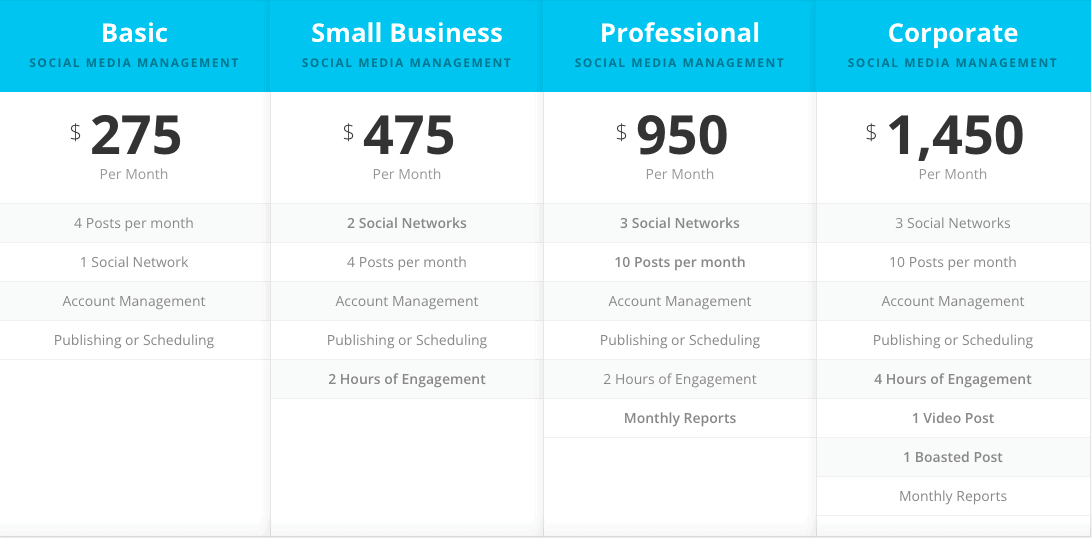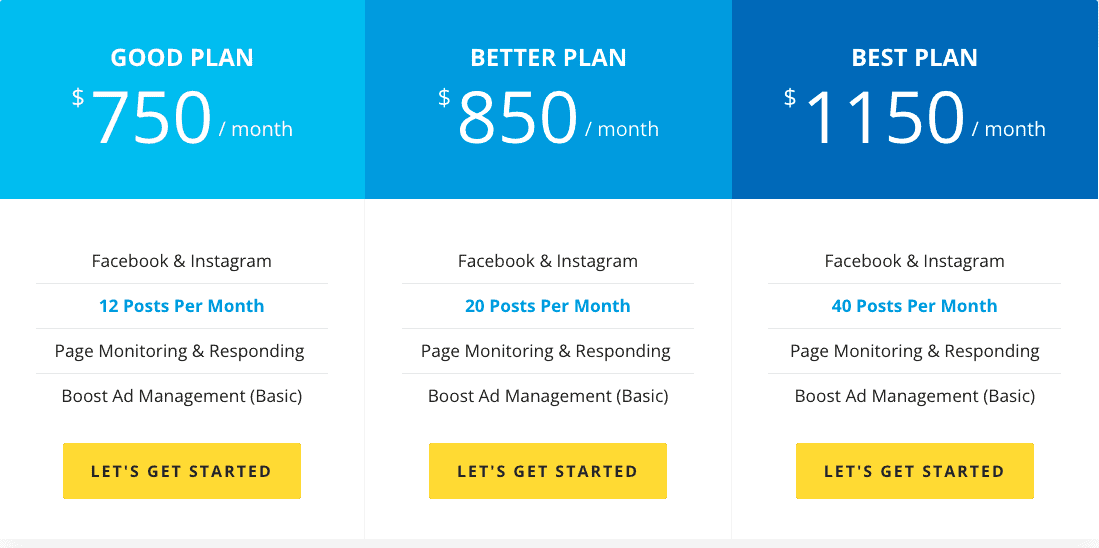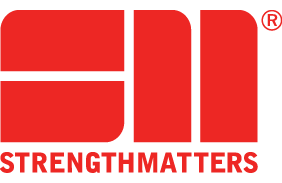Features
Why Sked?
Sked Social is a third party app and is not affiliated with or endorsed by any social network platforms.
See our Terms & Privacy Policy.
See our Terms & Privacy Policy.
© 2024 Sked Social. All rights reserved.

Give yourself and your clients the best bang for buck
When it comes to competing against other social media agencies and freelancers, it’s a jungle out there! Some social media professionals charge hourly, some use a monthly package, while others prefer to use campaign-based packages or work based on an annual contract.
There are so many factors that feed into deciding how you might charge a client, from the client relationship to the size of your social media marketing company and the length of time you’ve been operating.
If you’re part of an agency or are providing freelance social media marketing services, your job is to provide the best service possible, right? That means creating a package to suit every client’s needs. Of course, you don’t need to compromise your integrity and work according to terms that don’t suit you.
Some freelancers or agencies won’t want to accept terms like a 60-day payment schedule or a time-consuming hourly rate where you need to account for every 15-minute block of work completed. That said, if that works for you, then that’s great!
Above all, your clients want cost-effective packages that work with their existing budget, teams, and workflow. You, on the other hand, want to package up your services in a way that encourages commitment to an (at least) monthly package so you have a consistent stream of revenue coming in from multiple clients.
You also want to ensure that you’re charging enough for the time spent providing each service.
The key here is compromise.
It’s important to figure out an arrangement that suits both you and your clients. So, let’s dive in and explore why it’s a good idea to create social media packages for prospective and current clients and – most importantly – how to create packages to suit your business.
First things first – what exactly is a social media marketing package? Well, a social media package is essentially a bundled list of services wrapped up in one package; or, more commonly, a range of package options.
Each package typically contains a bunch of included services and is sold at a set price. Some agencies will also offer additional add-ons to create a more customized service.
A client might choose to select one of the social media marketing packages on offer for a set price. Then they might add any optional add-ons as needed, either right away or as their needs change.
Some agencies will offer packages on their website simply as a means of demonstrating to prospective clients what their service could look like and how much it might cost. But then when it comes time to pitch, they choose to offer a customized package that suits the client’s needs more closely.
Many agencies also provide an initial social strategy and a social media marketing plan at a set price and then move on to a monthly package and billing cycle. It depends on the freelancer or agency offering the services, the client, the timing, and a whole host of other factors.
So, why package your social media management services at all? We’re glad you asked! There are several reasons, so let’s get into it!
Even though creating and selling social media marketing packages is much better than charging hourly or working on a project-by-project basis, you need to set it up correctly from the beginning. So, let’s discuss how to do that, even if you’re just starting out!
Get everything social schedulers are missing without writing a blank check for an enterprise platform. AI-integrated tools, custom collaboration and approval workflows, deep analytics and insights, and real auto-posting to more platforms — it’s all here.
Get Started for FREEReady to get down to it? Here’s how to create and structure your social media marketing packages to ensure success.
First up, you’ll need to have an updated master list of your services. This should include all the services you want to offer in the future! Then, nail down your company’s specialty services. These services might include:
Some agencies or freelancers specialize in social media content creation whereas others may focus on Facebook ads, influencer marketing or even community management.
Once you’ve got your master list of services, think about the services that you offer most frequently (or those that most prospective clients are seeking).
If you’re just starting out, you might also want to review other agencies and see how they structure their services. You can also consider the experience of you and your team and create packages based on those specialty skills. For instance, if you have a staff member with strong skills in social media advertising services, you can certainly include this as a key service in your packages. If you come from an SEO background, on the other hand, you could add search engine optimization as an additional add-on service.
Once you have decided on all your services, you have to decide how to package them. We know it’s hard but try not to think too much about your pricing just yet.
Think about how best to sell your services. You can consider:
Ideally, you want to offer flexibility to your clients. After all, each client has its own unique business goals and timelines.
But, on the other hand, you also want to try to bag as many services as possible from each client. More services = bigger profits for you!
If you have absolutely no idea how to provide a service, don’t offer it.
Better to do a few things very well than offer fifty mediocre services. Don’t pretend you have a full-scale SEO team or PPC expert on hand when you don’t. Things like video production or social media scheduling can easily be outsourced but it’s helpful to have a few tools and partners up your sleeve before you commit to anything.
So, what should your packages look like?
Well, we recommend some combination of the below:
This is roughly how agency Social Magic structures their packages, as you can see below, with increasing levels of content and additional services for their more advanced packages.

On the other hand, Lyfe Marketing has an even simpler system, with an increasing price schedule depending on the number of social media posts required.

Or, if you want to include a variety of social media advertising packages, you could incorporate social ads into all of your packages but cap the client’s ad spend at a certain level based on each package.
Alternatively, you could structure your packages in an add-on capacity, where clients can cherry-pick their preferred services according to a list, multiplying the cost based on how many social media networks they need you to manage.
So, if your price was $500 per social media channel for end-to-end social media management and they needed help with three channels then their cost would be $1,500 per month.
Don’t want to include pricing on your website? That’s ok, too. You can still list out your services, expertise, case studies, and any testimonials. Just make it easy for potential clients to contact you and try to be as responsive as possible to avoid missing out on scoring new clients!
An alternative to this is to add caveats on your website underneath your pricing. Include your pricing, but provide a clear checklist of what’s included and what’s not, so potential customers don’t come to you with super high expectations!
So, how do you even begin to structure your social media management packages? Well, start by estimating the cost of each service within each package to get your “cost price”. This will be the cost to your business of what it takes to make that service happen for each client.
Let’s start with an example.
For social media content production, you might have the following monthly costs:
TOTAL = $1,855
This cost will likely change based on how many social media platforms the client is using. The number of social media networks you propose may depend on the client, their industry, their target audience demographic, and their progress to date.
If you’re a freelancer, based on the above scenario you’re already getting a baseline profit from copywriting and coordinating the content shoot. But you’ll probably want to add a premium on top of this to cover any additional hours. Also, keep in mind that your hourly rate needs to include benefits, healthcare, annual leave, and sick leave.
If you’re an agency you’ll have additional running costs to cover like employee benefits, insurance, staff training, rent, and a myriad of other costs. If you really want to calculate your true profit margin, you’d need to add up all your running costs, including employee wages, and balance it against your profits. Regardless, you’ll want to add a buffer on top of the cost above and then ensure you’re turning a healthy profit and have the room to continue expanding.
Remember, you’re not just selling X number of hours of work to your clients. You’re selling an invaluable service that will help your clients boost their brand awareness, increase their online engagement, bolster their brand profile, solidify their social media presence and, ultimately, help them increase conversions and make money. So, while you should know how many hours each service might take, you don’t need to share this information with the client. In fact, you shouldn’t! Besides, the time it takes to create each brand’s social media content can vary dramatically.
When it comes to social media marketing, not all packages are created equally. Sure, your agency’s pricing might be more expensive than another’s. But the more you can articulate your unique selling proposition (USP) and prove your value to prospective clients, the better. Remind prospective clients of all the fantastic things you offer as a freelancer or agency.
Maybe it’s that you have specific experience with brands just like theirs. Perhaps they’ll have access to a dedicated account manager every day. Or maybe you have a specific social media campaign in mind that you can propose to them, demonstrating that you understand how to take their brand to new heights. Go back and revisit your USP and find ways to integrate it into your proposal decks and online marketing materials.
Our tip: Remember, it’s important to stay competitive, but pricing isn’t the only factor businesses take into consideration. Finding a good agency can be a tricky business. Even small businesses and start-ups want to know that they’re going with the right agency, not just the cheapest one. If you invest time into proving the value of what you do, you can win more business at the right price. You can do this by gathering testimonials and creating customized pitches and presentations.
From here, just tack on any add-ons to your social media packages. These are usually services that don’t fit into the usual monthly packages you’ll be providing. Or, they might be services that a client is testing or using on a one-off basis as part of a launch or special promotion.
These might include:
Your clients might not need these add-ons, to begin with, but it’s important to let them know what you can offer. It’s also crucial that they’re not expecting any of these as a part of their standard monthly package!
This part should be easy – both for you and for your potential customers. Your social media management packages should be crystal clear and easy to understand.
It’s usually easiest to display them as a side-by-side comparison, so potential clients can easily compare them. Be sure to add the benefits of each option to (hopefully) upsell new clients.
Remember, don’t forget to offer the option of customization! Social Magic has done this quite well below. After all, not every client has the same requirements. It’s also nice to reassure clients that you understand their unique goals and requirements.

Add an FAQs section at the end of your pricing and packages page on your website, to ensure that you’ve covered all your bases!
If a client is just starting out with digital marketing or social media, keep in mind that there are several things they need to set up.
You’ll want to consider adding additional charges for the setup of their social media profiles. For each social media channel, you’ll need to set up a unique social media account, with images and descriptions using SEO-based copy. If you’re doing their social media advertising, you’ll need to set up ad accounts. You may also want to do some hashtag research to find the best hashtag combinations for Instagram.
If the client has come to a standstill with their social media marketing strategy, you need to find out why. You probably already did some research in the proposal stage but to go deeper you could do a full-scale social media audit. Of course, that can take a significant amount of time, so why not offer it as a one-off add-on cost? The client will get some valuable insights from the exercise and so will you!
If you’re serious about growing as a freelancer or social media marketing agency, it’s critical that you have well-structured social media management packages. Packages are the perfect way to present your agency professionally, attract potential customers and score new business.
The key to scaling rapidly is ensuring you have the processes, tools, and resources to back you. As your client base grows, keeping on top of content curation, scheduling and reporting can be stressful, and the potential to make mistakes can increase, especially when you’re working with several social media platforms for each client!
To keep on top of it all and execute a fabulous content calendar for multiple clients simultaneously, you need to have a high-performance social media scheduling tool like Sked Social. You also need to test, report on, and refine your results using specialized reporting functionality.
Sked Social is an all-in-one social media tool with powerful scheduling capabilities and advanced reporting functions which can help you churn out high-quality content faster than ever.
Its reporting features will enable you to create automated reports for each client, so you can spot the trends that will help refine their strategies. This will help your clients build their social media profiles more quickly by utilizing more of the content that works – and ditching the content that doesn’t!
Get started by signing up for Sked’s 7-day trial. Our all-in-one social media scheduler allows you to automatically post images, tweets, hashtags, carousels, Instagram Stories, videos, and more. But it doesn’t just work with Instagram. It also works with LinkedIn, Twitter, your Facebook page, and plenty of other social networks! Our smart scheduler enables you to save hours every week and turn your social media strategy from ad-hoc to amazing.





.webp)